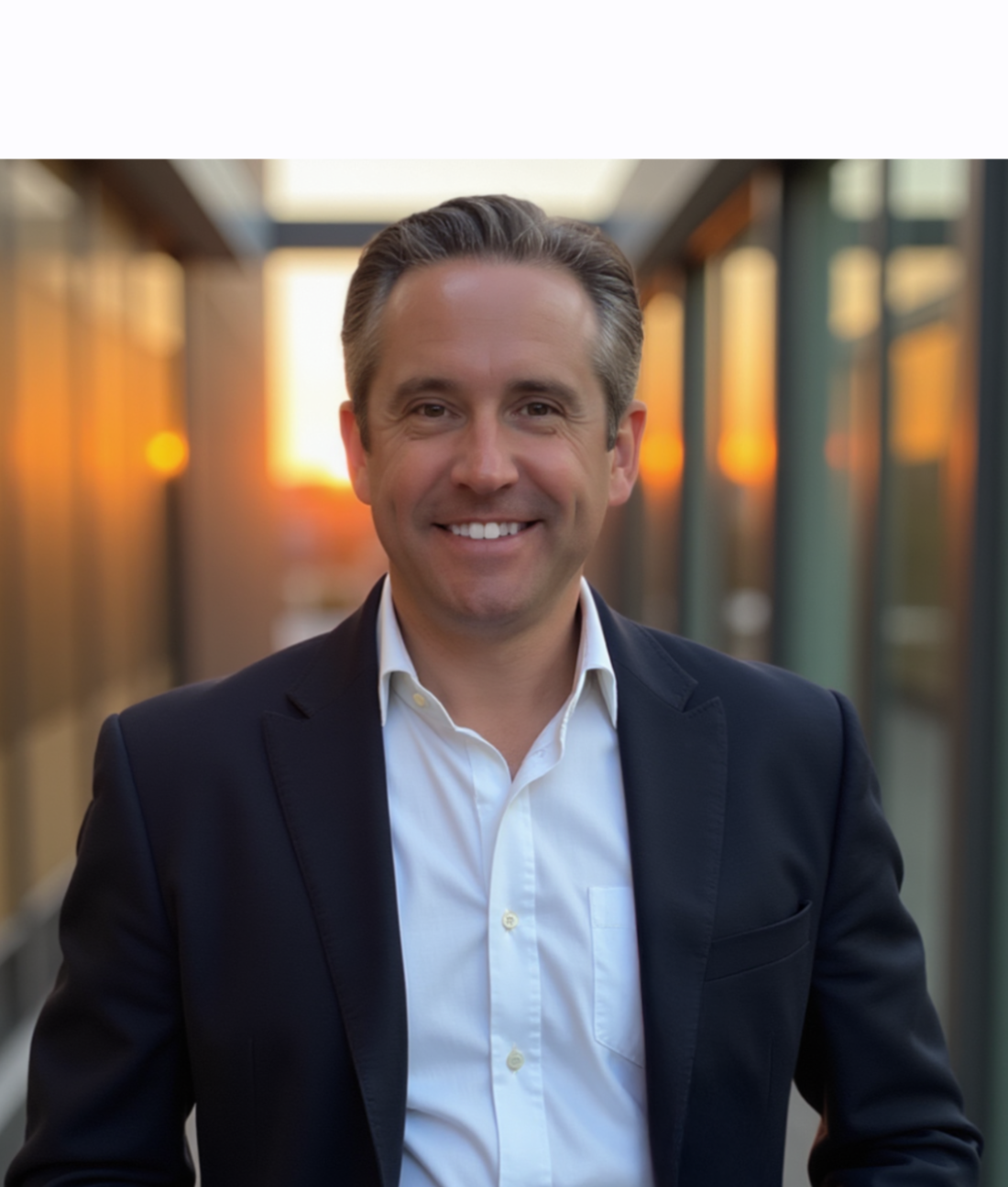The Future of Healthcare: A conversation with Dr. Fenna Heyning on reinventing hospitals for the digital age

In an age when we can book flights, manage bank accounts, and conduct meetings entirely online, why do hospitals remain tethered to physical spaces? Dr. Fenna Heyning, a specialist in Internal Medicine (PhD/MD) with extensive experience in hospital management, believes the future of healthcare lies in challenging this tradition. Her book, The Disappearance, explores a bold vision where hospitals embrace digital transformation and environmental sustainability to improve patient care and broaden the definition of healthcare itself. We sat down with Dr. Heyning to discuss her thoughts on the hospital of the future and the steps needed to make this vision a reality.
What inspired you to develop this vision of a more integrated healthcare system that moves away from traditional, centralized hospital models?
Dr. Heyning: It all began with my own career journey in medicine and hospital management, where I kept encountering the same structural issues. Patients, particularly those with chronic conditions, still need to travel long distances for care, often just to sit in waiting rooms. This doesn’t feel aligned with what digital technology now allows us to do.
One winter day in Amsterdam, I had finished my rounds at the hospital, grabbed my skates, and headed out onto the ice. With just a mobile phone, I realized I could continue supporting my trainee remotely. Nobody knew that I was out here skating. I was doing the same job I would be doing in the hospital, only without being stuck on the 10th floor of a skyscraper. In fact, the quality of my work was the same—maybe even better—because I was happier out on the ice. That moment got me thinking: healthcare, despite its complexity, could adapt to be much more digital.
Later, a colleague pointed out that people used to say the same thing about fintech, about banks—that it “needs to be personal,” that “people need a face.” But look what happened. And I thought, You’re completely right. That’s so true. For me, it was a real wake-up moment. If finance could transform, so could healthcare.
Could you share specific examples of digital therapeutics or apps that you believe would make a real difference in patient care?
Dr. Heyning: Digital therapeutics hold incredible potential, especially for chronic diseases like COPD, diabetes, heart failure, and Parkinson’s. We already have apps, such as Luscii, that allow patients to track key health indicators daily, with specialized nurses overseeing large groups of patients remotely. If something seems off, the nurse can reach out to check in, and patients have access to support day and night for any concerns. This proactive approach often means that issues are identified and addressed early, leading to significantly higher patient satisfaction and better care quality. In fact, this model has been shown to reduce hospital readmissions by up to 50%—a truly remarkable impact.
Another example is a digital platform for patients seeking advice from their GP. This app guides patients through symptom checks and offers preliminary advice before suggesting the next step, whether that’s reassurance with no further action, a short digital consult, or an in-person visit. Many patients find they don’t need to consult their GP after all, while others are satisfied with a quick digital consult. This setup has boosted patient satisfaction and freed up nearly 30% of GPs' time to focus on patients who need more in-depth care.
These tools also make a difference for caregivers. I often hear stories from family members, like spouses who feel free to leave the house again after their loved one’s heart attack, knowing they’re safely monitored. This reassurance has an important, positive impact on families, helping everyone regain a sense of normalcy and confidence.
You emphasize the importance of environmental and social responsibilities in your vision for healthcare. How do these ideas tie into the concept of a "disappearing hospital"?
Dr. Heyning: Hospitals contribute to pollution, surprisingly accounting for up to 7% of carbon emissions in some regions. Beyond that, I believe that healthcare should consider each patient holistically. We sometimes overlook social determinants of health—where patients live, their diet, their environment—when providing care. It’s not just about treating symptoms; it’s about addressing root causes. For example, a child’s asthma might be exacerbated by living near a highway. Addressing healthcare holistically means hospitals shouldn’t be isolated from these broader factors but should engage in reducing environmental impact and advocating for healthy community spaces.
What would this ideal, more digitally integrated hospital of the future look like?
Dr. Heyning: I see the future hospital as a hybrid model. We won’t need as many large physical hospitals. Instead, most care could be managed digitally or through care facilities nearby that offer advanced medical services without requiring lengthy stays. Hospitals would focus primarily on emergency and highly complex care, like surgeries, ICU admissions, and childbirth, with pleasant, green spaces that prioritize well-being.
There might be many patients who do not need to stay in the hospital anymore but are unable to go home yet—perhaps because their spouse isn’t able to provide the needed care, or they live alone. For these patients, we need to create a comfortable “care hotel,” a space between home and hospital where they can recover without requiring constant medical supervision. Outpatient care can largely be digital, allowing people to interact with healthcare professionals from their own homes. By balancing digital and physical spaces, hospitals can become more efficient, sustainable, and focused on complex, high-stakes care.
How do you think healthcare professionals can contribute to this vision, and what advice would you give them?
Dr. Heyning: Well, my book hopefully gives inspiration to our leaders. Just start, embrace change because it can bring a lot of positives, both for the patient and the care provider. The work can become more rewarding if there is more quality time with the patient. The work can become more enjoyable if you can balance remote working with coming into the hospital. The work can become more diverse if you not only see patients, but visit schools or factories too, where you can apply your expertise to educate children, teachers, and workers on how to live a safer and healthier life. This way, we can ensure good and accessible healthcare for ourselves, our children, and our grandchildren.
I’d also advise leaders to actively promote experimentation. Pioneers will face resistance, and that’s okay. You must start somewhere, and as you build evidence of the benefits, people will begin to see the value. That’s been my experience—initial skepticism gives way to support when people see improvements in patient care, satisfaction, and efficiency.
Dr. Heyning’s insights offer a compelling vision for a more agile, patient-centered healthcare system. With digital therapeutics, remote consultations, and a commitment to environmental and social well-being, her hospital of the future promises not just better care, but a better quality of life for patients and providers alike. Change in healthcare may be challenging, but as Dr. Heyning argues, it’s also an opportunity to rethink how we deliver one of society’s most vital services.















%2520980x600.jpeg)



